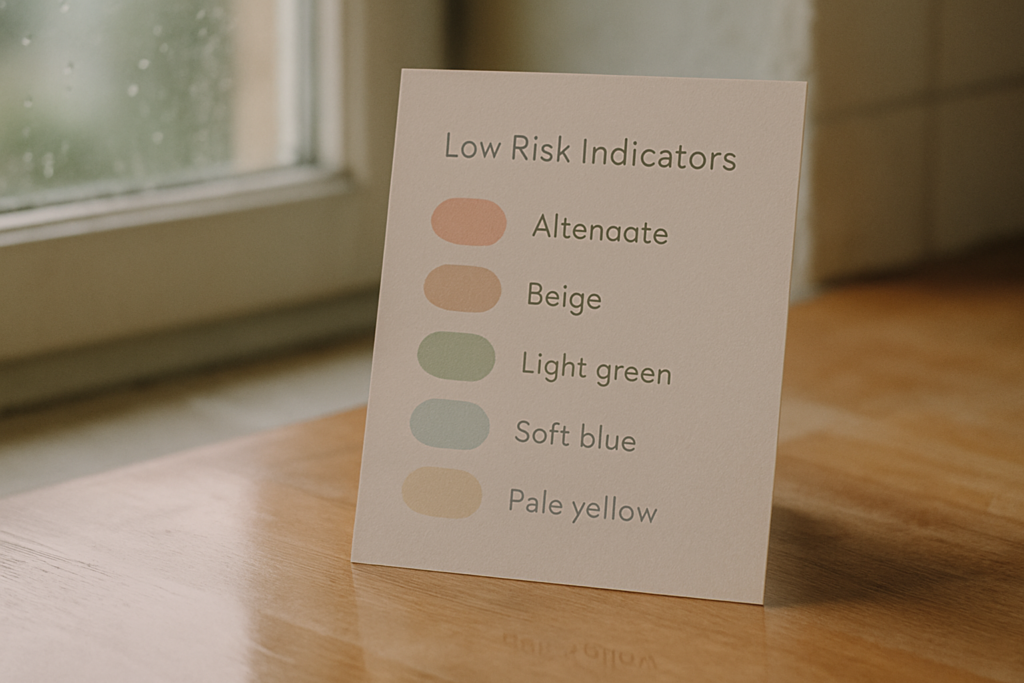Understanding Risk-Averse Gambling
Risk-averse gambling focuses on strategies designed to minimize risks while still enjoying the thrill of betting. It’s crucial to understand that being a risk-averse gambler means prioritizing long-term gains over short-term wins.
Identifying Low-Risk Games
Some casino games offer lower risks. Blackjack has one of the lowest house edges, around 1%, when players follow basic strategy. Baccarat also presents a low house edge, especially on banker bets. Craps features bets like the Pass Line bet, with a house edge of about 1.41%.
Setting Betting Limits
Fixed budgets help control spending. By setting a daily limit for gambling, risk-averse players can avoid significant losses. A win limit also ensures profits are locked in, and a loss limit prevents chasing losses.
Utilizing Casino Bonuses
Casinos often provide bonuses. Risk-averse gamblers can maximize these by understanding the wagering requirements. For example, choosing bonuses with lower playthrough conditions reduces the risk as less money is needed to unlock the bonus.
Choosing Games with Lower Variance
Games with low variance provide more frequent, smaller wins. Video poker offers low variance options, especially when played with optimal strategy. Slot machines with higher RTP (Return to Player) percentages and low variance can also be beneficial.
Adopting a Conservative Betting Strategy
Conservative betting strategies focus on minimizing risks over time. The Martingale strategy, which involves doubling bets after losses until a win occurs, can be risky if not capped. A more moderate strategy, like Flat Betting, where consistent stakes are placed regardless of wins or losses, helps manage risks better.
Leveraging Information and Research
Knowledge is a powerful tool for risk-averse gamblers. Studying odds and knowing the rules of each game improve strategic bets. Tools like simulation software can provide insights into potential outcomes and help refine strategies.
Avoiding High-Risk Bets
High-risk bets offer lower chances of winning. Progressive slots, while tempting due to large jackpots, usually have lower RTPs. Bets like the tie bet in baccarat have high house edges and should generally be avoided for safer gambling.
Choosing Reputable Gambling Platforms
Ensuring the platform’s legitimacy is crucial. Licensed platforms regulated by authorities like the UK Gambling Commission or the Malta Gaming Authority provide a safer gambling environment. Reading user reviews and checking for SSL encryption on websites also contribute to security.
Maintaining Self-Control
- Discipline is key in risk-averse gambling.
- Sticking to set budgets, not chasing losses, and taking regular breaks help maintain self-control.
- Utilizing self-exclusion tools provided by many platforms can also ensure responsible gambling.
- Understanding these strategies can make gambling safer and more enjoyable for those who prefer to minimize risks.
- By focusing on long-term gains and careful planning, risk-averse gamblers can still find plenty of enjoyment in betting.
Identifying Safe Betting Opportunities

To maximize safe betting, I identify opportunities with minimal risk, focusing on understanding low-risk games and appropriate betting limits.
Analyzing Low-Risk Games
I analyze games like blackjack, baccarat, and video poker that offer low-risk betting opportunities. Blackjack typically provides a house edge of 0.5% when optimal strategy is used. Baccarat, particularly the Banker bet, has a house edge of around 1.06%. Video poker, especially Jacks or Better, boasts a return rate of over 99% with correct play. These games, combined with proper knowledge of strategies, provide safer gambling options compared to high-variance options like slots or progressive jackpots.
Exploring Betting Limits
I set betting limits to control losses and prolong enjoyment. For example, using the 1% rule, I never wager more than 1% of my total bankroll on a single bet. Additionally, employing stop-loss and take-profit limits helps protect my funds; I walk away when losses reach a predetermined amount or when I’ve secured reasonable profits. These practices promote discipline and reduce the risk of significant financial losses.
Strategic Approaches to Safe Betting
For risk-averse gamblers, implementing strategic approaches is crucial for minimizing losses and maximizing enjoyment.
Bankroll Management Techniques
Proper bankroll management ensures that funds are allocated efficiently. Start by setting a fixed budget for gambling activities. This budget should be an amount you can afford to lose without impacting your financial stability. Divide your budget into smaller, manageable portions. A common technique is the 1% rule, where you only bet 1% of your total bankroll on any single wager.
Developing a stop-loss limit helps in controlling losses. For instance, if your stop-loss limit is 20%, you stop betting if you lose 20% of your initial bankroll. Similarly, establishing take-profit limits allows you to lock in winnings and avoid giving back profits. If your take-profit limit is 30%, you stop betting once your winnings reach 30% of your bankroll.
Utilizing Betting Systems
Betting systems offer structured approaches to placing wagers. The Martingale system involves doubling your bet after a loss, aiming to recoup previous losses when a win occurs. It’s essential to use this system with caution due to the risk of reaching the table limit or depleting your bankroll. Alternatively, consider the Paroli system, which focuses on increasing bets after wins. You start with a base bet and double it after each win, resetting to the base bet after three consecutive wins.
Another effective system is the Fibonacci sequence, where each bet is the sum of the two preceding bets. This method helps minimize losses during a losing streak while capitalizing on winning streaks. Lastly, the D’Alembert system involves increasing your bet by one unit after a loss and decreasing it by one unit after a win, further helping to manage risk in a structured manner.
Tools and Resources for Risk-Averse Bettors
Using the right tools and resources, risk-averse bettors can manage their stakes better. Here are some valuable options.
Betting Apps and Software
Betting apps and software help monitor bets and improve decision-making. Many apps offer features like odds comparison, bet tracking, and statistics analysis. For example, apps like “Oddschecker” provide real-time odds from various bookmakers, ensuring you find the best bets. Software like “BetAngel” and “RebelBetting” offer advanced betting strategies and automation, helping bettors minimize risks and maximize returns efficiently.
Educational Platforms and Communities
Educational platforms and communities provide knowledge and peer support for safer betting. Websites like “BettingExpert” offer tutorials, articles, and tips tailored for risk-averse gamblers. Forums and discussion boards, such as those on “Reddit” and “Betfair Community”, connect bettors to share insights and strategies. These platforms create a support network to learn and improve, making betting more secure and enjoyable.
Common Pitfalls to Avoid
- Ignoring Bankroll Management
Mismanaging your bankroll often leads to significant losses. Allocating specific funds for gambling activities ensures you don’t spend beyond your means. If this strategy is ignored, it becomes easy to chase losses or make irrational bets.
- Chasing Losses
Pursuing lost bets in hopes of a quick recovery usually results in further losses. Even though the impulse to chase losses can be strong, especially after a losing streak, staying disciplined helps avoid this common pitfall.
- Overlooking Game Rules and Odds
Playing without understanding game rules or odds increases risks. You should always familiarize yourself with the specific rules and odds of any game you intend to play. Ignorance in this area typically results in making uninformed decisions.
- Falling for the Gambler’s Fallacy
Believing that previous outcomes influence future results, known as the gambler’s fallacy, can lead to misguided betting choices. For instance, thinking that a roulette wheel landing on red multiple times increases the chance of black on the next spin is a classic example of this fallacy.
- Not Setting Limits
Failure to set betting limits, both in terms of time and money, generally results in overspending. Establish clear stop-loss and take-profit limits to maintain control over gambling activities. Without these limits, it’s easy to exceed planned expenditures.
- Relying Solely on Betting Systems
While betting systems like Martingale or Fibonacci can help manage strategies, relying solely on them is often risky. Betting systems cannot guarantee wins and should be used in conjunction with sound judgment and a solid understanding of the games.









